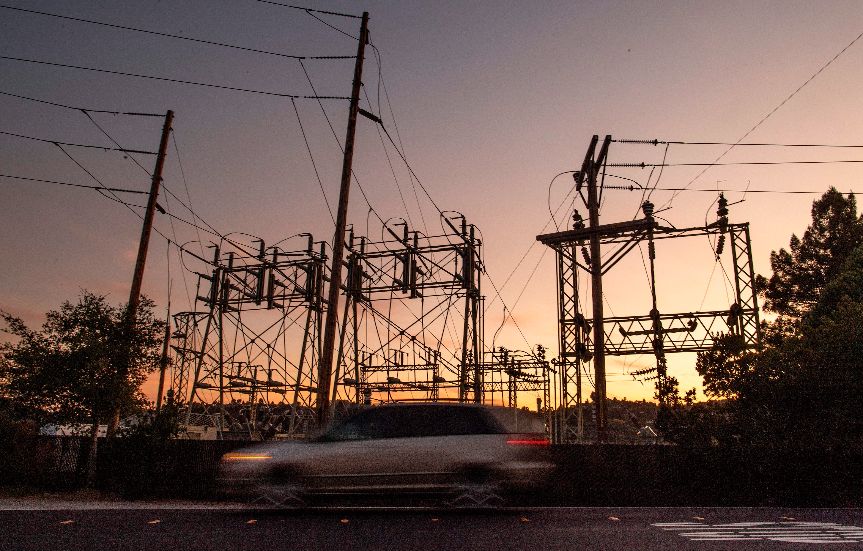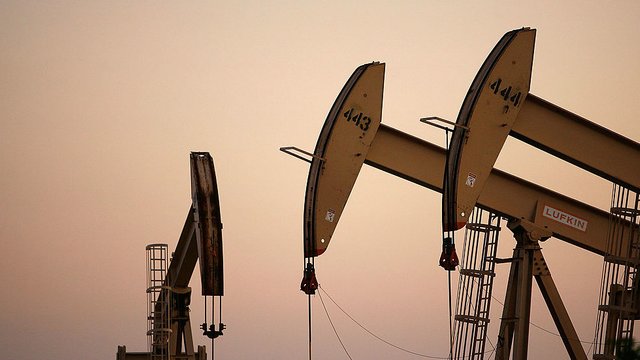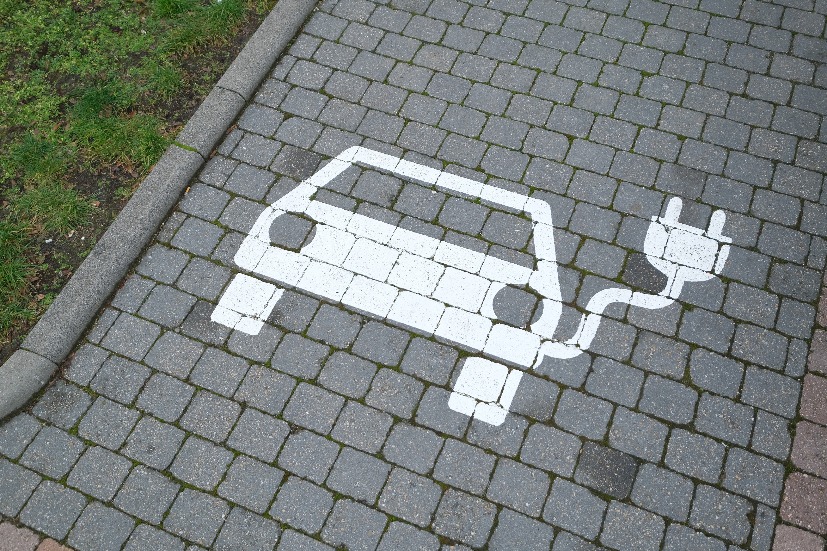Overnight Energy & Environment — Presented by the American Petroleum Institute — Manchin expresses his misgivings

Welcome to Monday’s Overnight Energy & Environment, your source for the latest news focused on energy, the environment and beyond. Subscribe here: digital-release.thehill.com/newsletter-signup.
Today we’re looking at Sen. Joe Manchin’s (D-W.Va.) opposition to Democrats’ proposed clean electricity program, a pipeline operator quitting while it’s ahead and a study with worrisome news for the next generation. We’ll also look at how a Democratic tax plan is sparking pushback from the plastics industry.
For The Hill, we’re Rachel Frazin and Zack Budryk. Write to us with tips: rfrazin@digital-release.thehill.com and zbudryk@digital-release.thehill.com. Follow us on Twitter: @RachelFrazin and @BudrykZack.
Let’s jump in.
Manchin details opposition to clean electricity program

Senate Energy Committee Chairman Joe Manchin (D-W.Va.) elaborated Tuesday on his opposition to Democrats’ plans for a clean electricity program as part of their mammoth $3.5 trillion spending bill.
Addressing members of the Federal Energy Regulatory Commission, Manchin expressed misgivings about subsidizing electric utilities to transition to renewables, voicing concerns this could lead to reliability issues being passed on to consumers.
“If we give [electric utilities] incentives to basically change their portfolio by 2030, reliability could be the loser… utilities will take every dime you want to give them, but they will not commit and be held accountable for reliability,” he said in closing remarks at a committee hearing. “That’s my problem.”
What did he say before? Manchin earlier in September expressed his opposition to a Clean Electricity Performance Program (CEPP), which is included in the Democratic reconciliation bill, on the grounds that it was unnecessary.
“The transition is happening. Now they’re wanting to pay companies to do what they’re already doing. It makes no sense to me at all for us to take billions of dollars and pay utilities for what they’re going to do as the market transitions,” the West Virginia Democrat told CNN earlier this month.
Why does it matter? But the program is a centerpiece of Democrats’ climate change goals, and is seen as among the solutions that could be responsible for the spending package’s greatest emissions reductions.
…but others seemed optimistic. “I’ve heard a little bit of skepticism but I haven’t heard any line drawing or anything like that,” Rep. Kathy Castor (D-Fla.) told reporters when asked about the program. “This is hopefully what they’re talking about at the White House.”
Meanwhile, Rep. Sean Casten (D-Ill.) called on leadership to put pressure on Manchin.
“The question really becomes, is Schumer and is Biden going to twist Manchin’s arm,” he told The Hill, referring to Majority Leader Charles Schumer (D-N.Y.).
NEWS ON THE INFRASTRUCTURE FRONT
Liberals on Tuesday sent a stern warning to Democratic leaders that a bipartisan infrastructure bill cannot pass through the House as long as Senate centrists remain non-committal on the larger social benefits package at the heart of President Biden’s agenda.
“If she were to call the bill, it will fail,” Rep. Jan Schakowsky (D-Ill.), a close ally of Speaker Nancy Pelosi (D-Calif.), said leaving a closed-door Democratic Caucus meeting. “Not because the Progressive Caucus, people like me, aren’t willing to vote for it. But … we had an agreement that we were going to get these two pieces [together].”
The warning is just the latest challenge facing Pelosi and other party leaders, who have scheduled a Thursday vote on the $1.2 trillion public works proposal, which passed through the Senate last month.
Why the rush? That timeline reflects Pelosi’s promise to moderate House Democrats, who have sought to divorce the bipartisan infrastructure bill from the larger and more controversial “family” benefits package.
The warning is the latest evidence that key progressives are sticking with their long-held insistence that centrist Sens. Joe Manchin (D-W.Va.) and Kyrsten Sinema (D-Ariz.) first commit to supporting the larger social spending package before the liberals vote in favor of the more popular public works bill. And they have the numbers, they say, to sink it.
In a brief interview with The Hill, Pelosi downplayed the threat from Schakowsky and other progressives: “We don’t even know where we are until we see where we come down on our agreement, so there’s no use speculating on what may or may not happen.”
Read more about what Democrats had to say on climate here and the latest in the House on infrastructure here.
A MESSAGE FROM API
These relationships…help us plan for the future,” says Andreas Shamel, of Ford Motor Company. That future includes lower CO2 emissions, achieved through partnerships with U.S. natural gas and oil companies.
Interior nixes Trump rule for cheaper drilling on public lands

The Interior Department on Tuesday withdrew a Trump-era rule that was expected to make it cheaper for industry to drill on federally owned lands and in public waters.
The announcement of the withdrawal, which will be published in the Federal Register this week, comes after the Biden administration had previously delayed the Trump rule from taking effect.
So remind me what this rule was again? The rule in question would have allowed companies to get additional cost deductions and use lower figures to calculate the value of the fuels they unearth.
The rule was also expected to have benefits for coal.
And why are they tossing it? The department argued in a statement on Tuesday that its move means that fossil fuel companies will pay their fair share to drill on public lands, estimating that it will prevent $64 million in lost payments each year.
The Biden administration argued that the rule needed to be withdrawn because of “defects,” including a flawed economic analysis and a lack of reasoned explanation for its changes.
The other side of the story: When the rule was put forward, the Trump administration argued that it rid the industry of unnecessary burdens.
Read more about the move here.
Ford to bolster electric vehicle production in multibillion-dollar push

Ford Motor Company announced plans on Monday to bolster its electric vehicle footprint in the U.S. by investing billions in three new battery plants and a pickup truck factory — generating 11,000 jobs across Tennessee and Kentucky.
“This is our moment – our biggest investment ever – to help build a better future for America,” said Jim Farley, Ford president and CEO, said in a press statement. “We are moving now to deliver breakthrough electric vehicles for the many rather than the few.”
Tennessee: Together with South Korean partner SK Innovation, Ford is investing $11.4 billion in these new initiatives, which include a $5.6 billion mega-campus in Stanton, Tenn., called Blue Oval City, which will house a BlueOvalSK battery plant, an assembly line for electric F-Series vehicles, key suppliers and recycling, a news release from the company said. The assembly plant, according to Ford, is designed to be carbon neutral with zero waste.
Kentucky: In central Kentucky, meanwhile, Ford and SK Innovation will be establishing a $5.8 billion BlueOvalSK Battery Park, which will include “twin battery plants” that will supply Ford’s North American assembly facilities with batteries for electric Ford and Lincoln vehicles, the news release said.
The new campuses are expected to create 6,000 jobs in Tennessee and 5,000 jobs in Kentucky, according to the partners. Ford’s $7 billion portion of the total $11.4 billion investments marks the biggest manufacturing investment in the firm’s 118-year history, the company said.
Read more about the venture here.
ON TAP TOMORROW
- State Department energy security adviser Amos Hochstein will brief the Senate Foreign Affairs Committee on administration efforts regarding energy security including Nord Stream 2
- The House Energy and Commerce Committee will hold an oversight hearing on the Chemical Safety Board
- The House Agriculture Committee will hold a hearing on mitigating wildland fire impacts on communities
- The Small Business Committee will hold a hearing on sustainable forestry
A MESSAGE FROM API
These relationships…help us plan for the future,” says Andreas Shamel, of Ford Motor Company. That future includes lower CO2 emissions, achieved through partnerships with U.S. natural gas and oil companies.
WHAT WE’RE READING
- Exxon splits with lobbyist who divulged climate strategy, E&E News reports
- White House speaking with OPEC about oil prices, Reuters reports
- Reusable Packaging Is the Latest Eco-Friendly Trend. But Does It Actually Make a Difference?, TIME reports
- We can’t just run away from wildfires, Vox reports
ICYMI
- Interior Department to review New Jersey offshore wind proposal
- Tribes call for ‘immediate action’ to protect Bears Ears National Monument: report
- Pelosi invokes climate conference in spending push
- Utility paying up to $1.8B in settlement for worst methane gas leak in US history
- 21 states urge Biden to consider stricter car emissions rules than proposed
And finally, something offbeat and somewhat off-beat: Get ready for Fat Bear Week!
That’s it for today, thanks for reading. Check out The Hill’s energy & environment page for the latest news and coverage. We’ll see you Wednesday.
Copyright 2023 Nexstar Media Inc. All rights reserved. This material may not be published, broadcast, rewritten, or redistributed.



